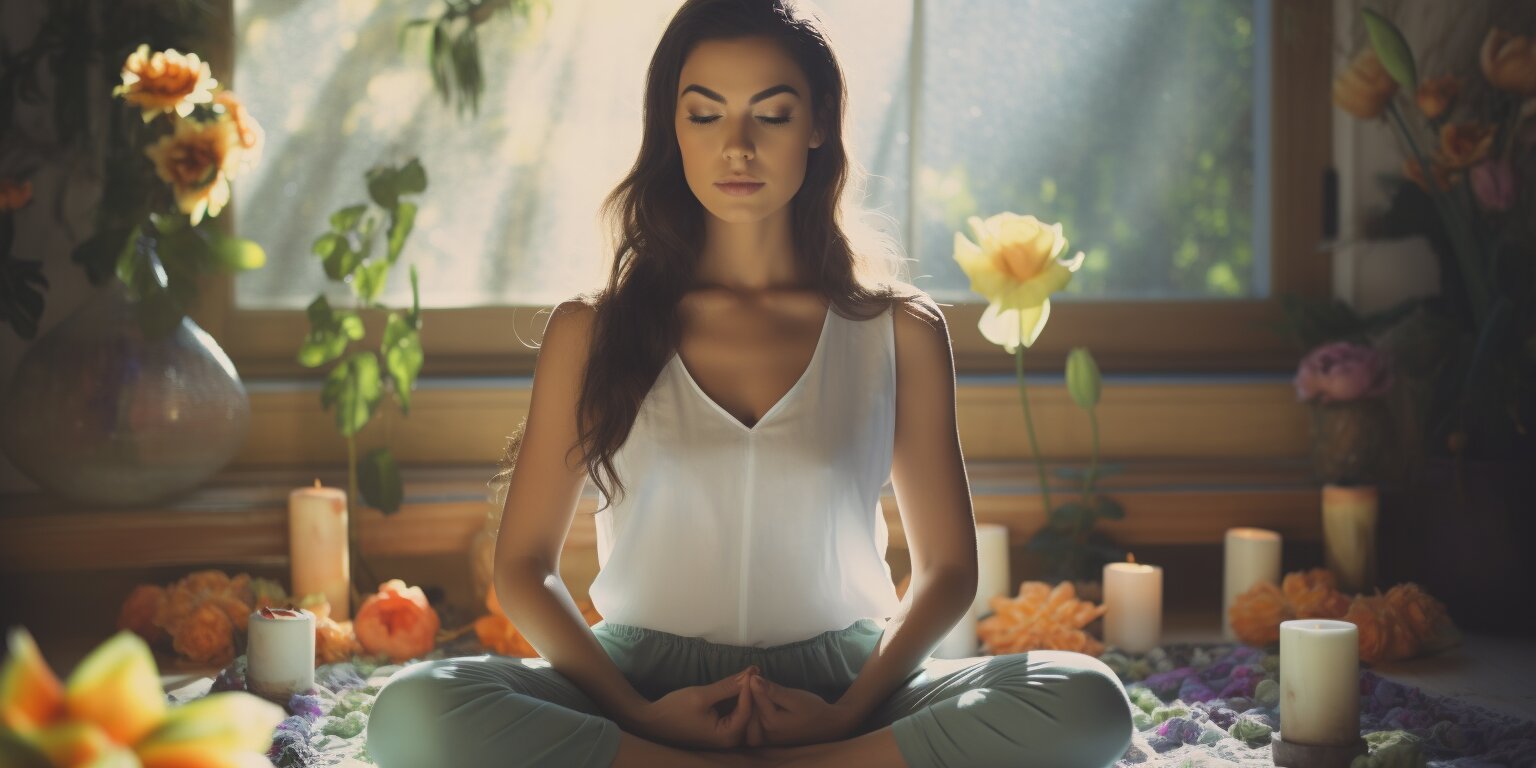In today’s fast-paced world, the importance of mental health and well-being cannot be overstated. Many individuals are seeking holistic approaches to mental health that complement traditional treatments and medications. Yoga, acupuncture, and aromatherapy are three holistic practices gaining popularity for their potential to promote mental well-being. In this article, we will explore these approaches and how you can integrate them into your wellness routine.
The Holistic Perspective
Holistic health comprehensively views an individual’s physical, emotional, and spiritual well-being. It recognizes that these aspects are interconnected and should be addressed together to achieve overall health and happiness. When it comes to mental health, holistic approaches aim to improve one’s emotional state, reduce stress, and foster a sense of inner peace.
Yoga: A Path to Mind-Body Harmony
Yoga, an ancient practice originating in India, has gained widespread popularity in the West for its holistic benefits. It combines physical postures, breath control, meditation, and mindfulness to promote harmony between the mind and body. Here’s how yoga can positively impact mental health:
1. Stress Reduction
One of the primary benefits of yoga is its ability to reduce stress. The combination of controlled breathing and mindful movements can help activate the body’s relaxation response, leading to decreased levels of the stress hormone cortisol.
2. Improved Emotional Well-being
Regular yoga practice has been linked to improved mood and emotional well-being. It can help manage symptoms of anxiety and depression by promoting the release of feel-good neurotransmitters like serotonin and dopamine.
3. Mindfulness and Self-awareness
Yoga encourages self-reflection and self-awareness. Practicing mindfulness on the yoga mat can translate into greater awareness of your thoughts and emotions off the mat. This heightened self-awareness can help you better manage your mental health.
How to Incorporate Yoga into Your Routine
You don’t need to be a seasoned yogi to reap the benefits. Start with beginner-friendly classes or online tutorials. Even just a few minutes of daily yoga practice can significantly affect your mental well-being.
Acupuncture: Balancing Energy for Mental Health
Acupuncture, a traditional Chinese medicine practice, involves the insertion of thin needles into specific points on the body. It is based on the concept of balancing the body’s energy, known as “qi” or “chi.” While acupuncture is commonly used for physical ailments, it can also have a profound impact on mental health:
1. Stress Reduction and Relaxation
Acupuncture sessions are often deeply relaxing. The experience of lying still with needles in place can promote a sense of tranquility and relaxation, which can alleviate stress and anxiety.
2. Improved Sleep
Many individuals with mental health concerns struggle with sleep disturbances. Acupuncture has been shown to improve sleep quality and duration, which can positively affect overall mental well-being.
3. Emotional Balance
Acupuncture can help regulate the release of neurotransmitters and hormones, leading to improved emotional balance. It may reduce symptoms of depression and anxiety by promoting a sense of calm and well-being.
How to Incorporate Acupuncture into Your Routine
To explore acupuncture, seek out a licensed and experienced acupuncturist. They will conduct a thorough assessment and create a personalized treatment plan. Regular sessions are often recommended for optimal results.
Aromatherapy: The Power of Scent
Aromatherapy is a holistic practice that harnesses the power of scent to promote mental and emotional well-being. It involves the use of essential oils, which are extracted from plants and have various therapeutic properties:
1. Stress Relief
Certain essential oils, such as lavender and chamomile, are known for their calming properties. Inhaling these scents through diffusers or topical application can help reduce stress and anxiety.
2. Mood Enhancement
Aromatherapy can positively impact mood. Citrus scents like lemon and orange are often associated with increased energy and a more positive outlook.
3. Improved Sleep
Lavender oil, in particular, is renowned for its ability to improve sleep quality. Diffusing lavender essential oil in your bedroom can create a soothing bedtime ritual.
How to Incorporate Aromatherapy into Your Routine
Aromatherapy is easy to incorporate into your daily life. You can use essential oils in diffusers, massage oils, or bath products. Experiment with different scents to find what works best for you.
Integrating Holistic Approaches into Your Routine
To maximize the benefits of these holistic approaches to mental health, consider integrating them into your daily or weekly routine:
- Create a Holistic Wellness Plan: Develop a plan that includes yoga, acupuncture sessions, and aromatherapy. Schedule these practices into your calendar just like any other appointment.
- Stay Consistent: Consistency is key to experiencing the full benefits. Commit to regular practice, whether weekly acupuncture sessions, daily yoga, or aromatherapy before bedtime.
- Seek Professional Guidance: When trying these holistic approaches, consult with experienced professionals. A qualified yoga instructor, licensed acupuncturist, or aromatherapist can provide expert guidance.
- Combine with Other Self-care Practices: Holistic approaches work best when combined with other self-care practices like a balanced diet, regular exercise, and adequate sleep.
- Listen to Your Body: Pay attention to how your body and mind respond to these practices. Adjust your routine as needed to suit your unique needs and preferences.
Bottom Line
In today’s fast-paced world, holistic approaches to mental health are gaining popularity for their ability to complement traditional treatments and promote overall well-being. This article explores the integration of yoga, acupuncture, and aromatherapy into one’s wellness routine as powerful tools for improving mental health.
Yoga, with its combination of physical postures, controlled breathing, and mindfulness, offers stress reduction, improved emotional well-being, and increased self-awareness. Acupuncture, a traditional Chinese medicine practice, promotes relaxation, better sleep, and emotional balance through the strategic insertion of needles. Aromatherapy harnesses the therapeutic properties of essential oils to alleviate stress, enhance mood, and improve sleep. To fully embrace these holistic approaches, individuals are encouraged to create a holistic wellness plan, stay consistent, seek professional guidance, and combine them with other self-care practices. By doing so, they can achieve a greater sense of balance and harmony in their lives, nurturing their mental health in a holistic and sustainable manner.




